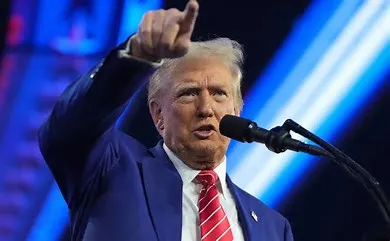US President-elect Donald Trump has revealed plans to establish a new government agency, the External Revenue Service, on January 20, the day he begins his second term. This agency aims to collect tariffs, duties, and other revenues from foreign sources, signaling a shift in the nation’s trade policy.
Trump declared on Truth Social, “Through weak trade agreements, America has fueled global growth while taxing ourselves. It’s time for a change. Those profiting from us will finally pay their fair share.”
Objective Behind the New Department
The proposed agency is part of Trump’s broader vision to reduce the tax burden on Americans by generating revenue through international trade. However, Trump did not clarify whether this department would replace existing agencies like US Customs and Border Protection or the Internal Revenue Service (IRS).
Potential Economic Impact
Experts have raised concerns about Trump’s trade tariffs, which include:
- A universal 10% tariff on global imports.
- A 25% duty on goods from Canada and Mexico.
- A 60% tariff on Chinese imports.
The conservative-leaning Tax Foundation estimates a 20% universal tariff could generate $4.5 trillion over a decade before economic repercussions reduce net collections to $3.3 trillion. In comparison, IRS tax collections exceed $16 trillion annually.
Criticism and Reactions
Senator Ron Wyden, a Democrat, criticized the proposal, stating, “This plan amounts to a multi-trillion-dollar tax hike on American families to fund tax breaks for the wealthy.”
Trade experts warn that such tariffs could disrupt trade flows, increase consumer costs, and provoke retaliation from other nations.
Unanswered Questions
Trump’s proposal has left several details unclear, such as:
- How the new agency will coordinate with existing revenue-collection bodies.
- Whether it will create additional government bureaucracy, potentially conflicting with his Department of Government Efficiency initiative, led by Elon Musk and Vivek Ramaswamy.
Conclusion
As Trump prepares for his second term, his ambitious trade reform plans promise to shake up existing systems. While supporters hail the move as a step toward economic self-reliance, critics argue it may impose significant costs on American households and businesses.




















